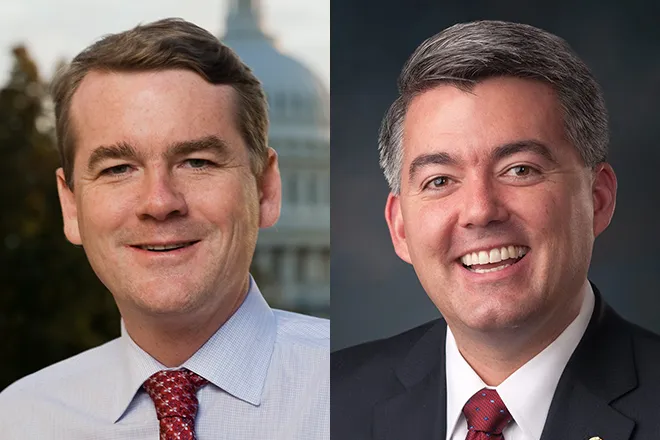
Daily Audio Newscast - April 30, 2024
News from around the nation.
Three US Marshal task force officers killed in North Carolina shootout; Massachusetts municipalities aim to lower the voting age for local elections; breaking barriers for health equity with nutritional strategies; "Product of USA" label for meat items could carry more weight under the new rule.
TRANSCRIPT
The Public News Service Doha Newscast, April 30, 2024.
I'm Mike Clifford.
Three U.S. Marshals Task Force officers were killed and four Charlotte-Mecklenburg police officers were hurt, one critically, during an East Charlotte shootout, which stemmed from a fugitive warrant operation on Monday afternoon.
That from WBTV.
They report as the U.S.
Marshals Task Force attempted to serve the warrant for possession of a firearm by a convicted felon.
They were met with gunfire from inside a home and officers returned fire.
They struck the suspect, and that person was pronounced deceased in the front yard.
And cities and towns across Massachusetts hope to increase young voter turnout in local elections by lowering the voting age to 16 or 17.
Somerville, Northampton, Southborough, and Concord are just a few of the municipalities which have attempted but failed to secure state approval.
State Senator Becky Rausch says allowing young people to vote on local matters helps ensure they'll keep voting throughout their lives.
That voting power fosters a real sense of civic duty and does, in fact, encourage higher turnout rates among young adults.
Opponents contend teenagers lack the ability or motivation to fully understand what's at stake in an election.
But Rausch points to Tacoma Park, Maryland, where the turnout rate for 16 and 17-year-olds exceeded that of any other age group for the first election in which they were allowed to vote.
I'm Catherine Karley reporting.
The effort is part of Civic Education, which was solidified as a centerpiece of K-12 education in Massachusetts back in 2018 and which received a significant funding boost from the state legislature this past year.
Next to Missouri, where residents are gaining new insights into the powerful role of food and health care as experts and organizations advocate for a shift toward food as medicine initiatives.
Assistant Professor Kelsey Gardner at the University of Missouri-Kansas City emphasizes the critical link between access to healthy food and improved health outcomes.
She notes that individuals facing food insecurity often experience higher rates of chronic diseases, highlighting the urgent need for systemic changes to enhance food access.
There are things that we can do and there are certain shifts nationally that are happening, whether that be through policy or through infrastructure changes.
And we can be doing more in the state of Missouri in order to help increase access to healthy food that can directly tie into better health outcomes.
Gardner underscores the potential of food as medicine interventions in preventing chronic conditions and reducing health care costs.
She says recent studies show that such interventions can lead to $13.6 billion over one year in cost savings and several improved health outcomes, making them a valuable addition to health care strategies.
Farah Siddiqui reporting.
This is Public News Service.
Big players in the beef and poultry industry now face pressure to prepare for a new federal rule for product of USA labels.
Advocates for smaller farmers and ranchers see an opportunity for these operations to reach more customers.
Companies selling meat products in grocery stores have until early 2026 to comply with the USDA rule announced this spring.
Product of USA labels are sometimes slapped on a meat item for sale.
Firms that outsource production overseas have been doing it because the item was packaged in the U.S.
But now all of the animal production has to be done domestically to use the label.
North Dakota Farmers Union President Mark Watney likes the move.
In some respect it should give a U.S. producer a distinctive advantage to the consumer that desires a product that is born, raised, slaughtered, processed to the U.S.
While the rule is binding, use of the label is voluntary.
Watney says advocates still have a long way to go in getting stronger mandates under country of origin labeling.
Critics of such moves worry about disrupting international markets.
I'm Mike Mowen.
And New Mexico is taking a deep dive into its funding of public colleges and universities to determine if inequities need to be addressed.
The Higher Education Sustainability Study will review and recommend changes to the formula used to fund higher ed.
Gerald Hone with the New Mexico Higher Education Department says it will look at possible inequities among the full range of sectors from colleges and universities to research institutions, independent community colleges and branch campuses.
The differences between community colleges and research institutions, those differences have come into how they're funded.
So this study gives us an opportunity to look at that in more detail.
I'm Roz Brown.
The National Center for Higher Education Management Systems is conducting the equality study on behalf of the state.
Finally, Arnatia Ramlegon lets us know the Blackwater River, which flows more than 30 miles through West Virginia's Allegheny Mountains, ranks among the top 10 most endangered rivers in the nation.
That's according to a new report.
Judy Rodd with the group Friends of Blackwater says Corridor H would involve building a bridge in an area honeycombed with old mines and explains the construction could compromise decades-old work to actively treat the water in the North Fork of the Blackwater impacted by acid mine drainage.
She's worried the highway could be a major environmental setback for the region.
We expect in the next year to really clean up this river and bring back a trout fishery that used to be there.
However, if they start building this bridge, they could be opening up old coal mines, old tunnels, which are filled with acid pollution.
This is Mike Clifford for Public News Service, member and listener supported.
Hear us on interesting radio stations, your favorite podcast platform.
Find our trust indicators at publicnewsservice.org.

















